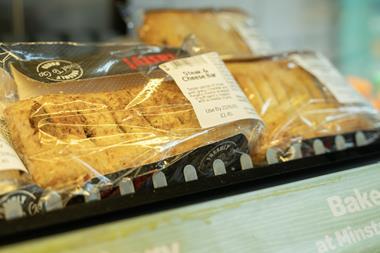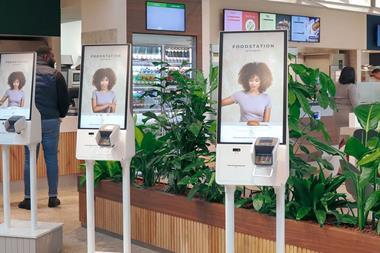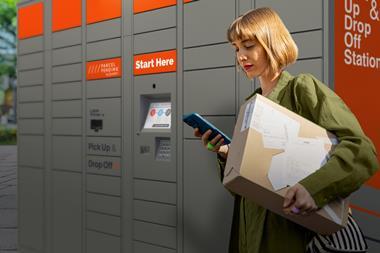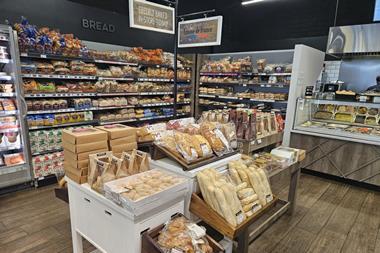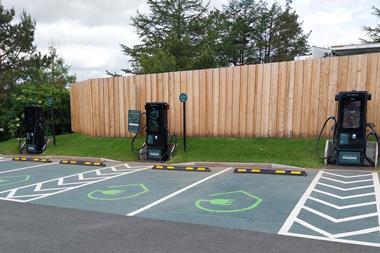With travellers embracing a wider array of transport, from electric vehicles (EVs) to public options, forecourt operators need to tap into demands for more flexibility. So, how can they position themselves to prosper in a less fuel-centric era for mobility?
How Brits move has changed a great deal since Covid literally stopped the country in its tracks three years ago. Having been confined to their homes, many Brits have chosen to stay there for at least some of the working week, with 44% working solely or partly from home – quadruple the pre-pandemic figure.
But it would be wrong to say that demand for work travel is dwindling. Two-third of British firms said they would be increasing spending on business travel by at least 50% this year, according to data from American Express – and most firms believing that travel is essential to business growth.
The effects can already be seen in international travel data. Brits readiness to travel abroad for work has increased, with trips up year-on-year from 661,000 to 1.4 million in the first quarter of 2023. Over the same period, business trips from overseas residents into the UK also grew from 802,000 to 1.4 million.
Importantly, these trips are likelier than ever to be in EVs. While the prime minister has softened the government stance on the zero emission vehicle (ZEV) mandate, car manufacturers are still expecting ambitious targets to sell higher proportions of EVs in the coming decade.

Business opportunity
These shifting business priorities and transport modes are challenge to forecourt operators, which have historically focused on selling as much fuel as possible. The industry must adapt to changing government mandates and driver preferences, with the focus being a move away from fuel and towards more mobility options.
While the cost-of-living crisis poses challenges to people wanting to cut back on their carbon footprint, three-quarters of Brits believe they have a responsibility to cut their carbon impact and contribute to net zero.
When it comes to cars, two-thirds of Brits are also convinced that EVs are the future, and it’s already translating into their purchasing decisions.
While only 5% of the cars on the roads today are EVs, they account for more than a fifth of new registrations[ACEA statistics]. A new battery electric car was sold every minute in the UK in July, according to the Society of Motor Manufacturers and Traders, which projects further growth by the end of 2024.
Then there’s the growth of EV charging networks. At the end of August there were more than 48,000 public EV charging devices in the UK, a 10% increase on the previous quarter. The number of rapid charging devices, accounting for a fifth of the network, also grew in line with the total.
And trends outside of the UK indicate that leasing companies will exclusively deal with EVs ahead of 2030. More hybrid fleets mean that forecourt operators need to broaden their service scope.
Those shifts will only be spurred on by changes to British tax law, which are simultaneously pushing drivers towards more sustainable options and making it costlier to run a car that uses a traditional internal combustion engine.
EVs will continue to be exempt from road tax until 1 April 2025. And when provided as a company car, electric vehicles are taxed more lightly by HMRC than peers with high tailpipe CO2 emissions.
Rethinking mobility
All these trends mean that forecourt operators must rethink their business models, especially if they are running their own fuel card programmes or intending to launch one. The key is to move from being a fuel retailer to being a mobility partner.
A mobility card based on XXImo’s platform has the capabilities to merge different payment networks onto one carrier, allowing card holders to pay for any kind of mobility need. Given the rise in EVs and charging infrastructure, it’s the perfect time to extend the scope of a mobility card by introducing a hybrid card.
Consolidating your payment infrastructure will enable you to accept payments on EV charging without having to invest in extra infrastructure, broaden card acceptance without buying new terminals, and generate a single invoice for reclaiming VAT.
And it’s not just about driving. Forecourt operators need to expand their cards to car washes, parking and other modes of transport, including public options, to support the greater need for flexibility among businesses and their employees. That’s without mentioning the retail offering.
Operators also need to adopt modern, convenient innovation from Google Pay and Apple Pay, supporting seamless payment experiences via smartphones or wearables.
Having all mobility transactions on XXImo’s platform gives employers and forecourt operators the key insights. Data from every transaction can generate intelligence on how to develop business further, satisfy complex reporting requirements on carbon emissions and drive strategic change.
With XXImo’s expertise in mobility payments and principal partnership with Visa, forecourt operators can provide innovative fuels cards that encompass a wider array of mobility services. This can open up new revenue streams while increasing customer satisfaction and loyalty. Put simply, modern mobility cards mean more footfall, and higher sales.
To find out more visit: https://www.xximo.com/uk-en/


























